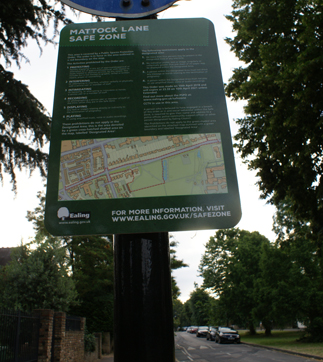Illegal gaming, such as the ‘cup and ball’ scam, is persistent on Westminster Bridge and nearby along the heavily touristed riverside. Hence a PSPO (Public Space Protection Order) in the South Bank area since 2016. It’s due to expire on October 10. The aim; to prevent street gambling and associated anti-social behaviour. Since February, council officers have issued over 290 fixed-penalty notices to offenders breaking the order.
Lambeth Council is now looking to extend the PSPO for another three years, pointing out that human trafficking, prostitution, exploitation of minors, pick-pocketing are known from council and Met Police data to be linked to street gaming.
Lambeth councillor Paul Gadsby, Cabinet Member for Housing, with responsibility for enforcement said: “Street gaming and gambling around the South Bank is a blight on one of London’s most popular destinations, so it’s vital that we extend this order and continue to work with the police and other local partners to clamp down on people who flout the law. Since this ground-breaking PSPO was introduced we’ve issued hundreds of fines to offenders. Street gaming and gambling is linked with other crime, including theft and pick-pocketing, so it’s important that we have the right tools to tackle it. We also know that there are vulnerable people caught up in this, with links to modern-day slavery, human trafficking and prostitution – the PSPO plays an important role in our efforts to protect them.”
A similar PSPO is in force on the promenade at the Lancashire resort of Blackpool by the borough council
Meanwhile, Salford Council recently made a PSPO to cover swimming at Salford Quays, besides tipping wheelie bins into the water or jumping from Quays bridges (a possible summer pursuit for youths). And Manchester City Council recently went out to consultation on a PSPO it proposes for the city centre, against begging and on-street anti-social behaviour (ASB) such as public urination; and a separate PSPO against commercial waste being left in public, except in secure, commercial waste company containers or commercial waste company sacks
More typically, PSPOs are in place to cover dog fouling, and keeping dogs from children’s play areas. More controversial have been PSPOs against begging and sleeping in a public place; critics arguing that such orders criminalise people for being homeless. Councils such as Southend which recently brought in a PSPO in the Essex resort’s town centre counter that their PSPO is against ASB that makes the high street and shopping areas less pleasant to visit and work in; enforcement of the order is intended as a last resort, and not to target people based solely on the fact that someone is homeless or rough sleeping.
Calderdale Council has recently set a ‘wildfire PSPO‘ covering moors above Hebden Bridge and Todmorden, against barbecues and letting off of Chinese lanterns and any other fires, to combat moorland fires. A similar order by Kirklees Council runs until October.
About PSPOs
Briefly, they are powers under section 59 of the Anti Social Behaviour, Crime and Policing Act 2014 , brought in by the Coalition to replace the previous Labour Government’s ASBO regime of anti-social behaviour orders. An authorised person (typically a police constable, or community support officer or a person authorised by the council) may issue a fixed penalty notice of up to £100 if an order is breached.
Pictured; PSPO signage in Ealing, west London, against demonstrations outside an abortion clinic.










